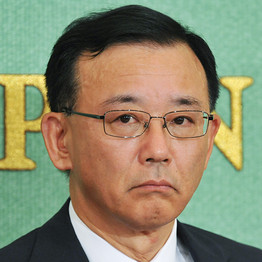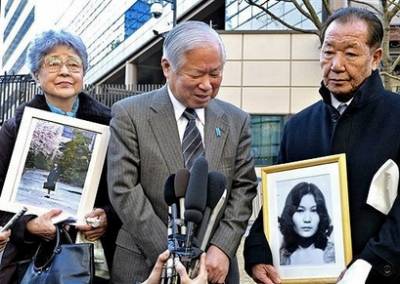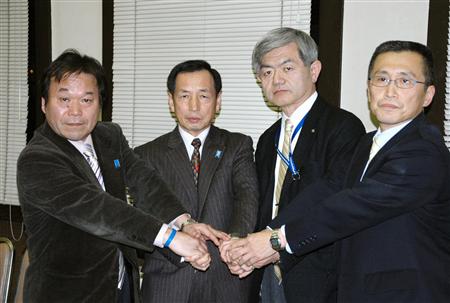There is an interesting opinion piece on the Asahi English site (thanks JapanProbe) on the Japan’s program to train Indonesian nurses started last year, under a bilateral economic treaty:
POINT OF VIEW/ Atsushi Takahara: Foreign nursing trainees face unfair hurdles
… Having finished a six-month Japanese-language study program, they started working in January and February. All of them are qualified to work as nurses in their home country and many of them have a lot of nursing experience. But most of those I met expressed anxiety and frustration.
This is because of the system that requires them to pass Japanese state exams within specified periods. If they fail, they must return to their home country. Would-be nurses have three chances to sit for the exams in three years of their stay. Conditions are tougher for aspiring care workers. Since foreign trainees are required to have actual working experience in Japan for at least three years before they can take the exam, they only have a single chance to pass in four years.
The language barrier weighs heavily on them. In particular, learning kanji characters is very difficult. For example, they must struggle with such technical terms as jokuso (bedsores) and senkotsubu (sacral region) that are difficult to read and understand, even for the average Japanese. Holding a Japanese-Indonesian dictionary, one trainee lamented: “I feel as though my head is about to burst.”
…
Under the comprehensive EPA, Japan accepts the trainees from Indonesia in exchange for the economic benefits, including abolition or reduction of tariffs on its exports of cars and electronic equipment. The government stands by the traditional policy of refusing to accept unskilled foreign laborers. Therefore, the government’s stance is that the acceptance of nursing trainees this time is a form of personnel exchange and is not meant as a measure to address a labor shortage. The government’s cold attitude seems to be a reflection of such a position.
After the government-sponsored six-month language training in Japan, the nurses must either study on their own or receive assistance from their workplaces to get their Japanese levels up to that of a practicing nurse’s. All for an all-or-nothing attempt at Japanese nursing qualification after four years! Sure, that’s what the program has been from the beginning, but I think what Takahara is trying to say is that what started as unfair remains unfair and should be changed.
So let me get this straight – in order to fulfill the letter of a treaty requirement that benefits Japanese companies with tariff relaxation, the Japanese government has decided to use these already-qualified nurses as pawns and in the process waste years of their lives. A similar fate no doubt awaits the Filipina nurses slated for acceptance under a similar bilateral arrangement with Japan.
According to an overview of potential benefits of the Japan-Indonesia “economic partnership agreement” (EPA) (PDF) released at the time of signing in August 2007, Japan is the largest single export destination for Indonesian products. Japan, for its part, chiefly benefits from Indonesia’s abundant natural resources (a key factor in their decision to invade during WW2). The country is Japan’s second most important supplier of liquid natural gas after Australia. LNG provides 35% of the household gas supply in Japan, according to Wikipedia. As with most trade agreements, the sheer number of line items and flood of statistics makes it tough to get through in a matter of hours let alone minutes, but suffice to say this agreement provides considerable tariff reduction, promises of market access, and non-tariff regulatory reforms that all serve to lower the cost and hurdles to doing business in either country. Also like other bilateral trade agreements, Japan is likely getting the better deal thanks to Japanese companies already superior competitive position.
Though I loved studying kanji and pursued it with a passion, I am a spoiled American and that was when I was in my prime learning years in my late teens and early 20s. These experienced nurses, who are in this country to make a living and previously had little inclination to study a foreign language, must find the task quite daunting (and distracting from the actual practice of care-giving). If my experience with a much simpler examination is any indicator, Japan’s exam culture will be no joke for a tightly regulated profession like nursing.
Could no compromise be found to help actually make this program work? Of course, that would assume that the Japanese government wants the program to work. As the op-ed notes, the acceptance of these nurses was essentially a token gesture to the Indonesian government, not a good faith effort to do right by anyone, either the nurses who want to work in Japan or the hospitals, patients, and other stakeholders in Japan. While I cannot know the intentions of the crafters of this program (it appears to have been hammered out through bilateral negotiations led by the foreign ministry), it’s entirely possible that they’d prefer to see these programs fail so other countries won’t demand their inclusion or expansion in future economic negotiations.
This points to a possible problem with making these decisions within the framework of comprehensive trade agreements rather than Japan unilaterally deliberating on its own future. While I understand the rationale of international “free trade” agreements as a way to circumvent narrow national interests for the greater good of efficient economies, the tight restrictions on these nurses constitute anything but free trade. And as part of a treaty covering billions of dollars in trade and the entire economies of two countries, how can 208 nurses hope to be anything but a footnote?
But once negotiated, this program has in fact benefitted from a relatively high level of scrutiny, since it is a pilot program, the foreign, Muslim nurses stand out, and ironically because they are negotiating tools in high-level bilateral trade ties. As Takahara notes, “If the trainees go home feeling angry with Japan’s ‘cold policy’ and such a reputation spreads, it could cause a deterioration in Indonesian public sentiment toward Japan. ” For that reason and the real need to find solutions to Japan’s aging society, the government and the public have an interest in seeing programs like this succeed, though whether that interest will translate into a fair shake for these nurses or better results down the line is another issue entirely.
Takahara and I may be proven wrong to conclude that the nursing exam is just too hard for most of these nurses, but I doubt it. As unjust as the Indonesian nurses’ situation sounds, perhaps the experience of these programs can open the issue to more public criticism and maybe some solutions (Takahara seems to be in favor of giving the nurses more time to pass the test and more flexibility and support in general). That way, what began as a farce can be turned into a workable program.






